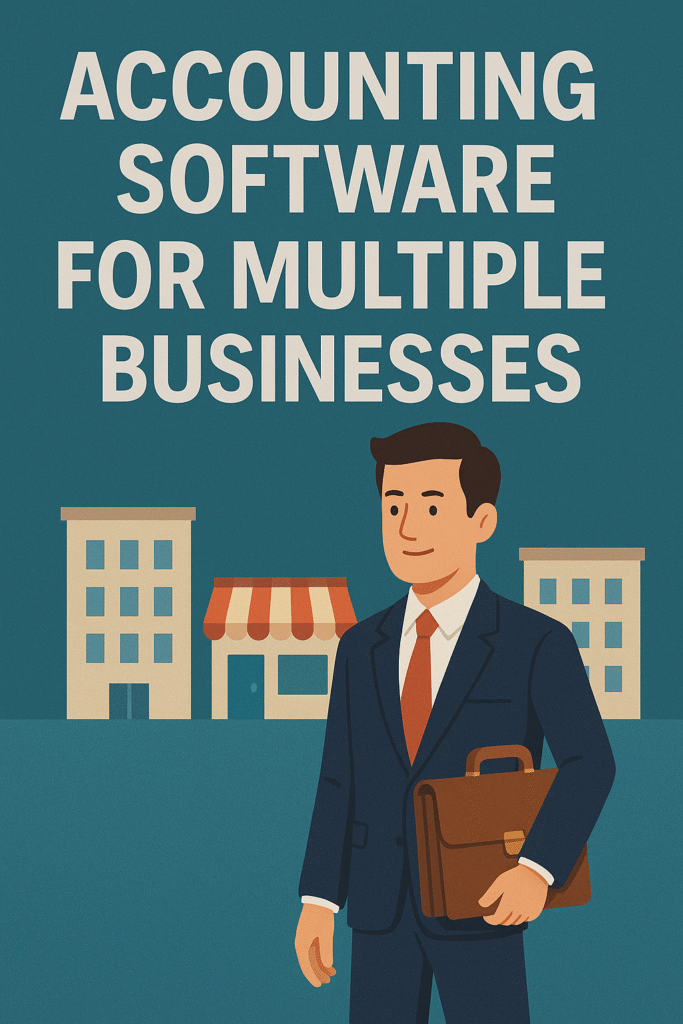Juggling the finances for one company is challenging enough. When you’re managing multiple ventures, the complexity multiplies. Separate spreadsheets, different bank accounts, and disjointed records can quickly become a recipe for errors and wasted time. If you’ve found yourself asking, “There has to be a better way,” you’re right. The solution often lies in finding the right accounting software for multiple businesses.
But with so many options on the market, how do you choose the best one for your specific situation? It’s not just about tracking income and expenses; it’s about finding a system that brings clarity, efficiency, and scalability to your entire portfolio. Here’s a practical guide to help you make the right decision.
1. Prioritize Multi-Entity Support
This is the non-negotiable feature. You don’t just need software you can use for different companies; you need a platform built to handle them all in one place. Look for true multi-entity support. This allows you to:
-
Manage all businesses under a single login.
-
Maintain completely separate financial records for each entity.
-
Avoid the security risk and inefficiency of using multiple subscriptions or logins.
The core of your search should be for a dedicated accounting software for multiple businesses that offers this centralized control.
2. Consider Consolidation Capabilities
As a portfolio owner, you need to see both the individual performance of each business and the overall financial health of your entire operation. The best tools offer consolidated reporting. This feature automatically combines key financial statements (like the Income Statement and Balance Sheet) from all your entities into a single, comprehensive view. This is invaluable for making strategic decisions and simplifying tax preparation.
3. Evaluate User Access and Permissions
You might have a different bookkeeper for each business, or a single CFO who oversees everything. Your software must offer robust user permission settings. Look for the ability to:
-
Grant users access to one, some, or all companies.
-
Control what each user can see and edit (e.g., view-only access for a manager, full access for an accountant).
This ensures security and clarity, preventing users from accidentally viewing or altering the wrong company’s data.
4. Assess the Scalability
Your chosen platform shouldn’t just work for you today; it should grow with you. Consider:
-
Pricing Structure: Does the price skyrocket with each new business entity you add? A flat fee or reasonable per-entity cost is ideal.
-
Feature Depth: Does it offer advanced features like inventory management, project tracking, or payroll that you might need as your businesses expand?
Choosing a scalable solution prevents the painful need to migrate to a new system down the road.
5. Check for Integration Potential
Your accounting software shouldn’t live in a silo. It needs to connect with other tools you use, such as your point-of-sale (POS) systems, payment processors, e-commerce platforms (like Shopify), and business banking accounts. Smooth integrations automate data entry, reduce errors, and save a significant amount of time across all your ventures.
Top Contenders to Explore
While your final choice will depend on your specific needs, here are a few platforms known for excelling as accounting software for multiple businesses:
-
QuickBooks Online: Offers a multi-entity management add-on (Advanced) that is powerful and popular.
-
Xero: Supports multiple companies with a single login and is known for its strong third-party app integrations.
-
Zoho Books: Provides an affordable and user-friendly option for managing a group of companies.
Final Thoughts
Investing time now to find the right system will pay dividends in saved hours, reduced stress, and sharper financial insight. By focusing on multi-entity support, consolidation, user permissions, and scalability, you can find the perfect accounting software for multiple businesses to streamline your operations and help your entire portfolio thrive.


[…] You Might Also Like: accounting software for multiple businesses […]
[…] You Might Also Like: accounting software for multiple businesses […]